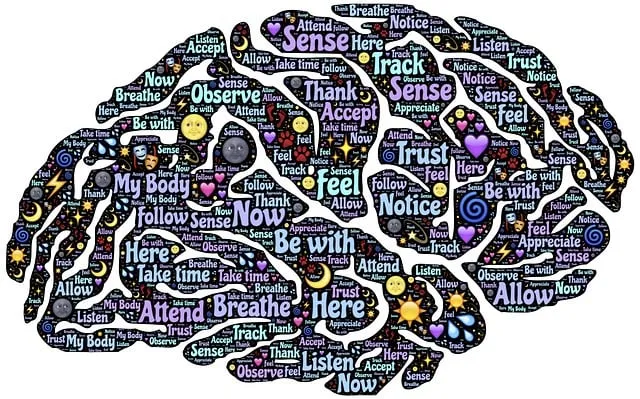Mindfulness meditation, gaining popularity for its mental health benefits, helps individuals cultivate present-moment awareness and understand themselves better. Scientifically proven to reduce stress, anxiety, depression, and improve focus, emotional regulation, and overall well-being. Organizations like Westminster's Kaiser offer mental health services incorporating mindfulness practices as part of a holistic approach. Starting a practice involves dedicating daily time, finding a quiet space, focusing on the breath, and exploring different techniques. Through comprehensive services, education programs, trauma support, and accessible resources, Kaiser empowers individuals to integrate mindfulness into their daily routines for enhanced mental wellness.
“Unwind your mind and embrace a calmer life with mindfulness meditation, a powerful tool for improving mental well-being. This comprehensive guide, tailored for the modern individual, explores the art of mindfulness through three key sections. First, we demystify mindfulness meditation, offering a basic introduction to its benefits. Then, discover practical tips and techniques to begin your practice. Finally, learn strategies to seamlessly integrate mindfulness into daily routines, ensuring long-term success—a valuable resource for those seeking mental clarity in today’s fast-paced world, even if you’re with Westminster or Kaiser.”
- Understanding Mindfulness Meditation: A Basic Introduction
- Getting Started with Meditation Practice: Tips and Techniques
- Incorporating Mindfulness into Daily Life: Strategies for Long-Term Success
Understanding Mindfulness Meditation: A Basic Introduction

Mindfulness meditation is a practice that has gained immense popularity in recent years, thanks to its numerous mental health benefits. It’s not just about sitting quietly and observing your thoughts; it’s a skill that empowers individuals to cultivate present-moment awareness and develop a deeper understanding of themselves. This ancient technique has been scientifically proven to reduce stress, anxiety, and depression, while also improving focus, emotional regulation, and overall well-being.
At its core, mindfulness meditation involves focusing on the breath as an anchor for attention, observing thoughts and sensations without judgment, and gently guiding the mind back to the present moment whenever it wanders. Organizations like Kaiser in Westminster offer mental health services that incorporate mindfulness practices, highlighting their recognition of its therapeutic value. A consistent meditation practice can be a game-changer for anyone looking to enhance their mental health, especially when combined with strategies such as Communication Strategies and Self-Care Routine Development for Better Mental Health, as part of a holistic Mental Health Policy Analysis and Advocacy approach.
Getting Started with Meditation Practice: Tips and Techniques

Starting a mindfulness meditation practice can seem daunting, but with the right approach, it becomes an accessible and rewarding journey. Begin by setting aside a dedicated time each day for your practice; consistency is key to reaping the benefits. Find a quiet space where you won’t be disturbed, and get comfortable. You might choose to sit on the floor with crossed legs, or opt for a chair if that’s more convenient. The important part is to maintain good posture, ensuring your back is straight but not rigid, to allow for ease of breathing.
There are numerous techniques to guide you; one simple method is to focus on your breath. Close your eyes and bring your attention to the sensation of air flowing in and out of your nostrils or the rise and fall of your abdomen. When thoughts inevitably wander, gently return your focus to your breath. This practice is an excellent way to cultivate present-moment awareness and build resilience. Over time, you can explore various forms of meditation, including self-awareness exercises and communication strategies, which can enhance your overall mental well-being, especially when combined with the services offered by Westminster Kaiser for mental health support.
Incorporating Mindfulness into Daily Life: Strategies for Long-Term Success

Incorporating mindfulness into daily life is a key aspect of long-term mental health success, and Westminster does Kaiser offer mental health services that can guide individuals in this journey. Strategies for sustained mindfulness practice involve integrating simple techniques into everyday routines. For instance, mindful breathing exercises can be performed during short breaks at work or while commuting, turning mundane tasks into opportunities for presence and awareness. Incorporating mental health education programs design focused on mindfulness can further enhance these practices, helping individuals develop a deeper understanding of their thoughts and emotions.
Trauma support services and mental wellness podcast series production also play a significant role in fostering long-term mindfulness. Podcasts offer accessible resources for learning and practicing mindfulness techniques, while trauma support services provide specialized care for those dealing with past traumas. By combining these resources, individuals can cultivate a strong mindfulness practice that positively impacts their overall mental wellness, promoting resilience and balanced living.
Mindfulness meditation, as explored in this guide, offers a simple yet profound tool for enhancing mental well-being. Whether you’re a beginner or looking to deepen your practice, the techniques outlined can help navigate daily challenges with greater equanimity. Incorporating mindfulness into your routine, much like Westminster does Kaiser offer mental health services, supports long-term mental resilience and overall quality of life. Remember, consistent effort and patience are key; embrace each moment as an opportunity to cultivate presence and awareness.

